Tears of joy together with feelings of pride, camaraderie and nostalgia were on display amongst nursing and midwifery stalwarts at the official launch of the Australian Nursing and Midwifery Federation (ANMF) 100-year documentary in Sydney last week.
Almost like a family reunion, the guest list boasted long-time nurse and midwife ANMF members from around the country, and included four former Federal Secretaries, Branch Secretaries and Presidents. The event was hosted at The Calyx by current ANMF Federal Secretary Annie Butler and Federal Assistant Secretary Lori-Anne Sharp.
Following the public viewing of the documentary for the first time, Assistant Minister for Health and Aged Care and former ANMF Federal Secretary Ged Kearney said: “It’s made us stand straighter with our shoulders back. So very proud.”
The ANMF’s accomplishments span decades – from establishing nursing and midwifery schools in the 1920s to the transition into university education during the 1970s and early 80s.
As the current ANMF Federal Secretary, it was a great privilege to be at the helm for the milestone, said Ms Bulter, on launching the documentary.
“It’s our union. The mighty ANMF. Together our collective purpose, passion and power for nurses and midwives, our profession and our movement over the last 100 years. The ANMF celebrates 100 years of strength, unity, and progress. Thank you to all of our members for being part of this incredible journey.”
Over the century, the union has achieved extraordinary accomplishments in protecting, promoting and progressing the professional and industrial rights of members and safer healthcare policies and practices, which have resulted in improved patient care outcomes.
Victorian nurse practitioner Leanne Boase was brought to tears as she watched the ANMF’s achievements, from fair wages and better working conditions to promoting safer healthcare practices and improved patient care.
“I’m quite emotional, it’s brought back so many memories for me. It makes me so proud, this is our history, our heritage. I was a job rep when we got the ratios. We talk about the strikes and for those of us how hard it was to walk out at the time but what a difference it has made. When I reflect on what we have gained from that and still do to this day.
“When I started there was only two pathways – management and education. We now have a pathway for nurse practitioners. I was one of the first NPs, it’s an important pathway for nurses and important for the workforce. We’re moving forward as a profession.”
Lyndsey Ohman, who featured in the documentary, has been a nurse and union member both in the United Kingdom and the ACT since she started in the profession 40 years ago. “The greatest benefit of the union is the support. You need to know that if you haven’t got a voice, the union is there for you. So many times, decisions are made on behalf of us without knowing what we do or what we need. It’s not just for us but also for our patients.”
South Australian RN Nannette Lawson, who also featured in the documentary, was spurred on to join the union while a student nurse at university after an assignment question posed: “Should nurses be political?” “I was like: ‘hell yeah’. I went to the union to get some information on the political work of the ANMF and I joined up on the spot.”
A proud history
A union member for more than 40 years, Minister Kearney said the union was made up of members, nurses and midwives committed to the profession, their patients and the health system. “The union has been there all the way for 100 years. Now we are the biggest union in the country. We’re a force for change, a force for good, a force to be reckoned with.”
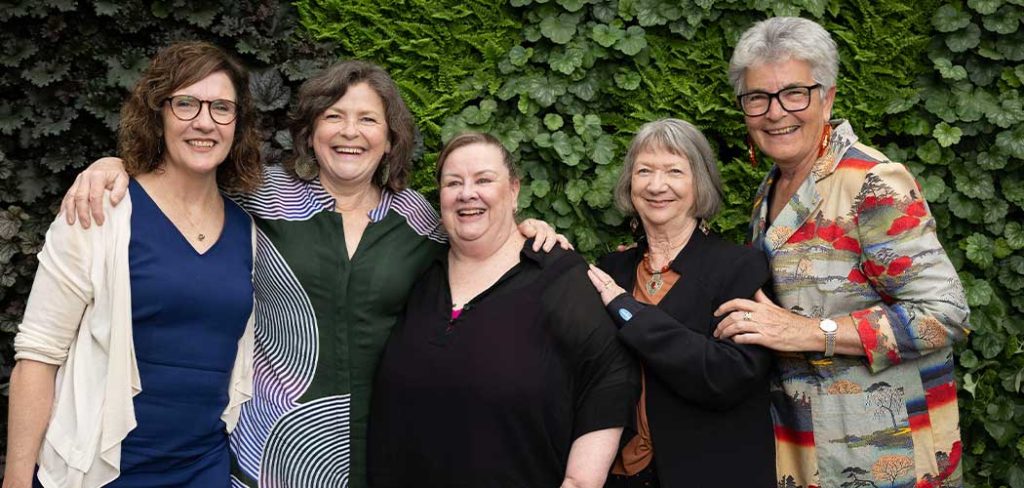
In 1924, for the first time that there was a meeting of the Federal Council of the then Australian Nursing Federation, and that pulled together at that time just 748 members (1924). Today, the official count of ANMF’s membership is 326,789 nurses, midwives, personal carers and students.
Queensland RN and midwife Ashleigh Sullivan said the collective experience in the room on the day was inspiring. “As someone up and coming in the movement to be here with so many unionists and nurses and midwives who’ve paved the way is amazing. I think I’m on the right path. So many wins and gains over the years and the benefits that I and my generation enjoy.”
In the documentary, nurses and midwives pay homage to those who had gone before them. Retired Victorian RN Hannah Sellers acknowledged the difficult conditions back in 1924. “Nurses would’ve had numerous patients to look after. The wages of course were minimal.”
“Not only was it tough, in terms of you not being safe in your job, you also weren’t respected for it. It wasn’t even recognised as a job. It was just like, well, was this what women do,” said Australian Council of Trade Unions (ACTU) President Michele O’Neil.
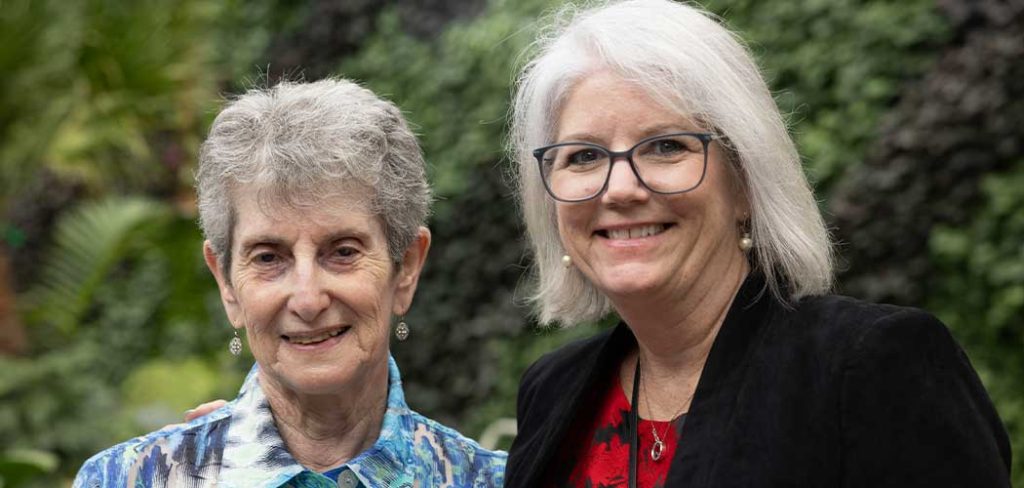
Removal of the no strike clause in Victoria in 1986 marked a seismic shift for nurses and midwives and political activism. For the first time, nurses were able to take industrial action as we know it today.
“My mum was doing her training only a year before I started in 1986 when there was the big walkout for 50 days and she was out on the picket lines fighting for much better pay,” said Victorian RN Mel Connan.
The industrial action laid the groundwork for successful campaigns with considerable gains including better wages and conditions, university education, national registration, no lifting campaign, nurse practitioners, nurse and midwife patient ratios, and aged care.
“We’re actually so often viewed as a benchmark of the things that can be achieved for the professions of nursing and midwifery by other countries around the globe,” said Ms Butler.
Victorian NP Terry Swanson said the union was about solidarity. “Being together is so strong. We can do much more together than standing alone and we’ve proven that time and time again. We have fought for great things, not just the betterment of the nurses but for the patients.”
“Importantly, we’ve fought hard for, and won vital nurse-to-patient ratios, penalty rates, and better pay and conditions for our members,” said Ms Butler. “Where we are now 100 years on, 100 years strong, of incredible achievements for nursing and midwifery, I think they’d think we’ve done them proud,” she said of the ANMF’s founders.
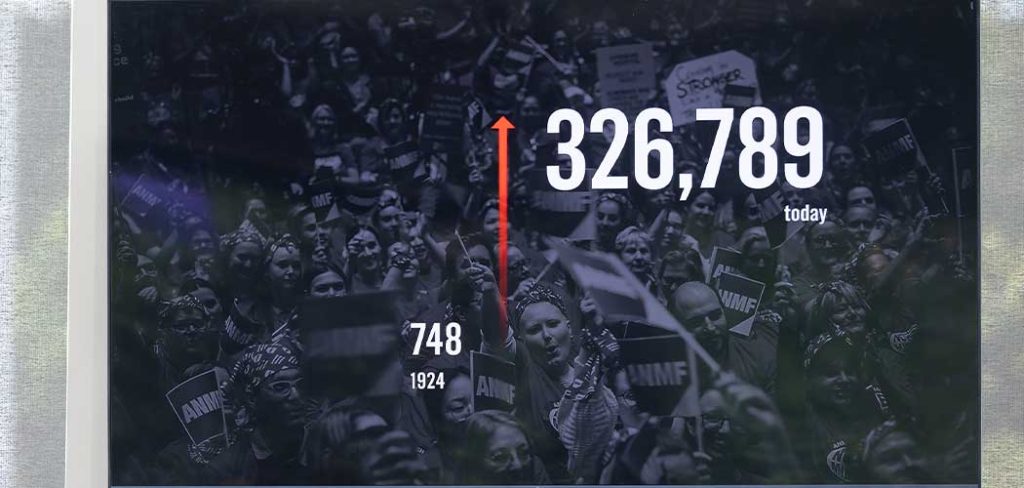
Marking 100 years was also a time to look forward to the work ahead, said Ms Butler. Big ticket items include advancing workforce reforms, continuing to strengthen Medicare for equitable access to healthcare for all Australians, full scope of practice for nurses and midwives, and advocating for gender pay equity.
“It’s not just about having support, it’s about progression and moving forward and being in a great career that’s got a long way to go yet and the ANMF are going to take us there,” said former ANMF Federal President Coral Levett.
The event was hosted by Federal Secretary Annie Butler, Federal Assistant Secretary Lori-Anne Sharp, with special guests Health and Aged Care Minister Mark Butler; Employment and Workplace Relations Minister Senator Murray Watt, Assistant Minister for Health and Aged Care and Assistant Minister for Indigenous Health Ged Kearney (a former Federal Secretary of the ANMF); past and present ANMF Federal, State and Territory Branch Secretaries; ACTU Secretary Sally McManus and ACTU President Michele O’Neill and other union leaders.


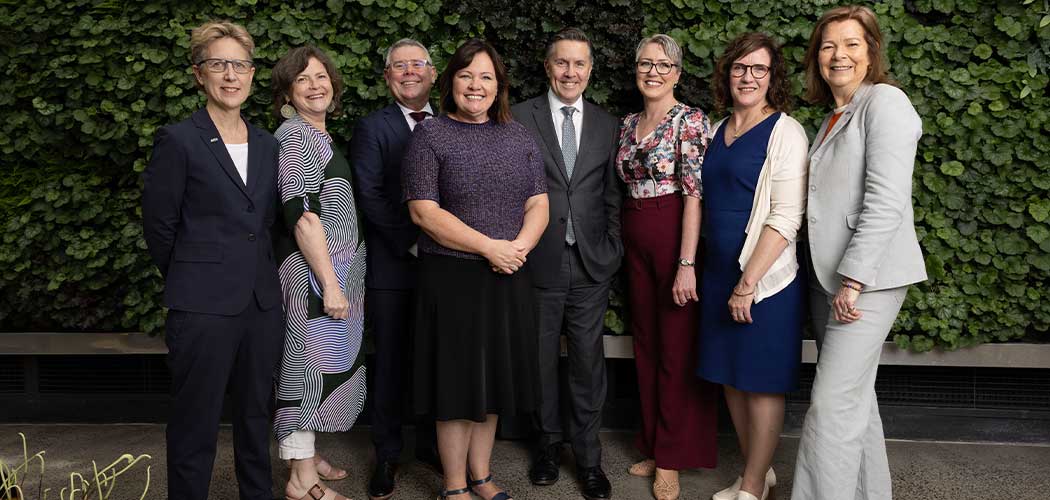


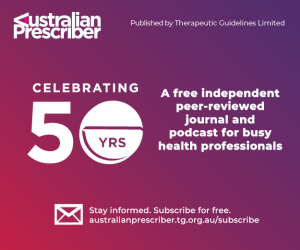
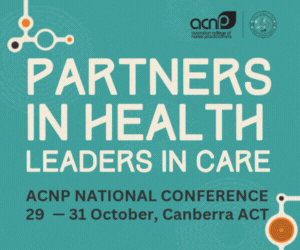


One Response
As a past job rep, committee member,branch president. I have seen the ANF develop into the ANMF and the NT branch become a voice of reason in the NT. Congratulations On the first 100 years